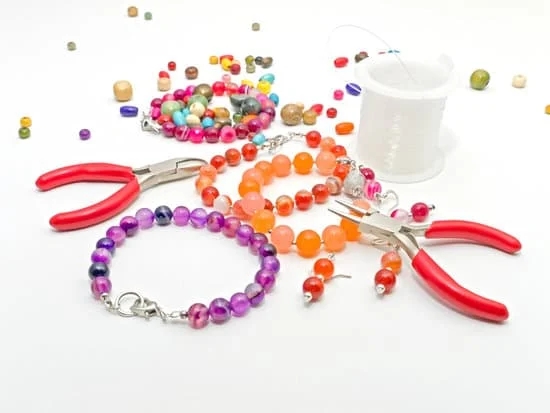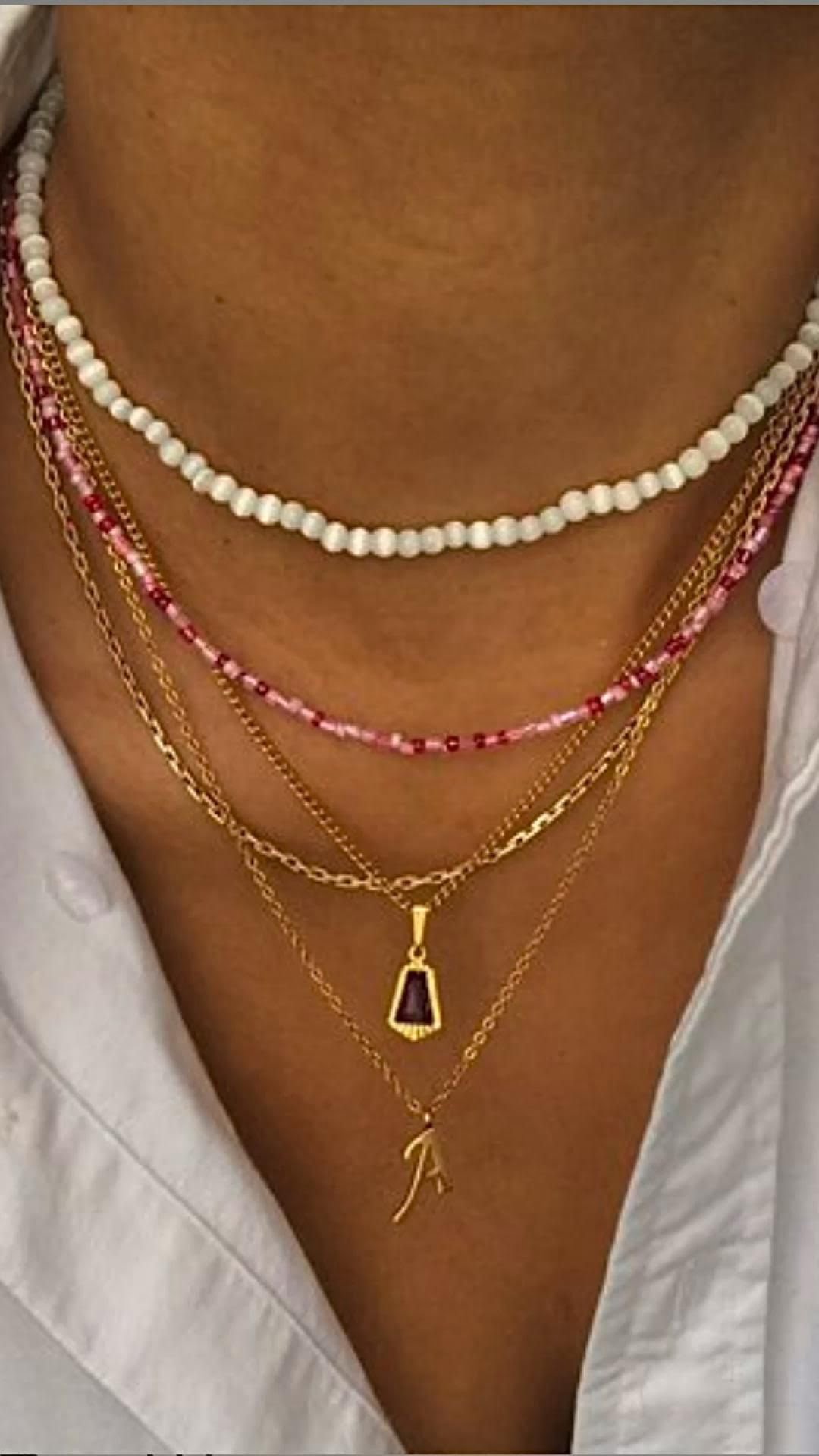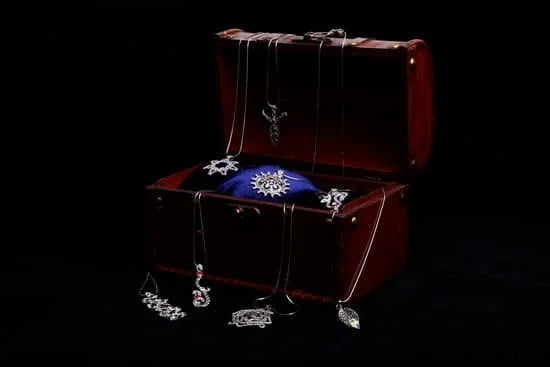Jewelry is a cherished possession that adds elegance and style to our lives. Whether it’s an heirloom piece passed down through generations or a fashionable accessory we wear daily, regular cleaning is essential to maintain its beauty and keep it looking new.
Using the right jewelry cleaner can make all the difference, but have you ever wondered if these cleaners have an expiration date? In this article, we will delve into the world of jewelry cleaning, explore the different types of cleaners and their ingredients, and address the pressing question: does jewelry cleaner expire?
Keeping our jewelry clean not only enhances its appearance but also helps prolong its lifespan. Over time, dirt, oil, and everyday residues can accumulate on our favorite pieces, dulling their shine and luster. This is where jewelry cleaners come to our rescue. These specialized cleaning solutions are designed to effectively remove dirt, tarnish, and restore the brilliance of precious metals and gemstones. But like many other household products, it’s important to know whether jewelry cleaners have a shelf life.
Throughout this article, we will uncover what goes into making a jewelry cleaner effective: from common ingredients such as ammonia and detergents to different types of cleaners available in liquid form, wipes or solutions. We’ll explore how they work their magic to bring back the glow so you can continue enjoying your prized jewels for years to come.
So let’s dive in as we unravel the mysteries behind jewelry cleaning and discover if our favorite cleaner has an expiration date.
Understanding Jewelry Cleaner
Jewelry cleaning is an essential part of maintaining the beauty and longevity of your precious gems. Over time, jewelry can accumulate dirt, oil, and tarnish, which can dull its shine and affect its overall appearance.
Regularly cleaning your jewelry not only helps to keep it looking its best but also ensures that it stays in good condition for years to come. Jewelry cleaner is a popular choice for cleaning jewelry as it is specifically formulated to remove dirt and restore the shine of various types of materials such as gold, silver, gemstones, and pearls.
Ingredients in Jewelry Cleaners
Jewelry cleaners contain a combination of ingredients that work together to effectively clean your jewelry. Some common ingredients you may find in jewelry cleaners include ammonia, detergents, lemon juice or citric acid. Ammonia is often used due to its ability to dissolve grease and oils while detergents help lift away dirt and residue. Lemon juice or citric acid are natural acidic agents that can be effective at removing tarnish from metals like silver.
It’s important to note that different types of jewelry cleaners may have variations in ingredients depending on the brand or formulation. Some products may be labeled as gentle or mild cleaners suitable for delicate gems and metals while others may specifically target heavy tarnish or stains.
Types of Jewelry Cleaners
There are various types of jewelry cleaners available on the market today, each with their own advantages and uses. Liquid jewelry cleaners are commonly found in spray bottles or squeeze bottles and typically require dilution with water before use. These liquid cleaners are versatile and can be used on a wide range of jewelry pieces.
Another option is pre-moistened wipes or pads that come individually packaged which makes them convenient for travel or quick touch-ups. They are usually pre-saturated with a cleaning solution making them ready for immediate use.
Jewelry cleaner solutions also come in handy for deep cleaning or heavily tarnished jewelry. These solutions often need to be mixed with water and typically come with special trays or brushes for more thorough cleaning.
By understanding the different ingredients and types of jewelry cleaners available, you can make an informed decision on which cleaner is best suited for your specific needs and preferences.
Shelf Life of Jewelry Cleaner
Discussion on the shelf life of jewelry cleaners
When it comes to the shelf life of jewelry cleaner, many people wonder if it actually expires. The answer is yes, jewelry cleaner can expire. Like any other product, jewelry cleaner has a limited lifespan and certain factors can affect its expiration.
The shelf life of jewelry cleaner depends on various factors, including the ingredients used and the packaging. Some common ingredients found in jewelry cleaners include ammonia, detergents, and lemon juice. These ingredients can break down over time, rendering the cleaner less effective or even ineffective. Additionally, exposure to air and sunlight can also impact the shelf life of jewelry cleaners.
It’s important to note that different types of jewelry cleaners may have different expiration dates. Liquid cleaners tend to have a shorter lifespan compared to wipes or solutions that come in sealed containers. Therefore, it’s essential to check the packaging or label for any specific instructions on expiration dates provided by the manufacturer.
Factors that affect the expiration of jewelry cleaners
Several factors contribute to the expiration of jewelry cleaners. As mentioned earlier, exposure to air and sunlight can accelerate the breakdown of certain ingredients in these cleaners. Additionally, contaminants such as dirt or other substances introduced into the cleaner during usage can also affect its longevity.
The quality and composition of the packaging also play a crucial role in determining how long a jewelry cleaner will last. Products with inadequate seals or containers that allow air and moisture to enter are more likely to expire sooner than those with proper packaging.
Furthermore, some brands may add preservatives or stabilize their formulas to extend their shelf life. It’s worth considering using brands that implement such measures if you’re concerned about extending your jewelry cleaner’s lifespan.
Signs of an expired jewelry cleaner
Knowing when your jewelry cleaner has expired is crucial for ensuring effective cleaning results while avoiding potential damage or health hazards. There are several signs to look out for that indicate an expired jewelry cleaner.
One of the most apparent signs is a change in color or odor. If the cleaner’s color becomes darker or it gives off a strong and unpleasant smell, it is likely past its expiration date. Another sign is a loss of effectiveness in cleaning your jewelry. If you notice that your jewelry isn’t as clean or shiny as it used to be after using the cleaner, it may be time for a replacement.
It’s essential to prioritize safety and efficacy when using jewelry cleaners. Therefore, if you observe any of these signs, it’s recommended to replace your expired jewelry cleaner with a new one to ensure optimal results while keeping your precious gems safe.
Effects of Using Expired Jewelry Cleaner
Using expired jewelry cleaner can have detrimental effects on both your jewelry and your health. When a jewelry cleaner expires, it can become less effective in removing dirt and tarnish, and may even cause damage to your precious pieces. Expired cleaners may also contain ingredients that have degraded over time and could potentially cause skin irritation or allergic reactions. It is crucial to understand the potential risks and issues associated with using expired jewelry cleaner.
One of the most significant effects of using expired jewelry cleaner is the potential for damage to your jewelry. Over time, the active ingredients in the cleaner can break down or change composition, leading to discoloration, fading of gemstones, or even scratches on delicate surfaces. Additionally, if the cleaner has expired, it may not be strong enough to effectively remove tarnish or restore shine to your pieces.
Using expired jewelry cleaner can also pose health hazards. Some cleaners contain harsh chemicals that can irritate the skin or cause allergic reactions. If these chemicals degrade or become unstable over time, they may become even more harmful when applied to your skin or when you come into contact with them during the cleaning process. It is essential to be mindful of any changes in color or odor of the jewelry cleaner as these could be signs of expiration.
To avoid these unwanted effects, it is important to properly store and handle your jewelry cleaner. Store it in an airtight container away from direct sunlight and extreme temperatures, as these factors can accelerate its expiration process. Always use clean applicators when applying the cleaner to prevent contamination by bacteria or other substances that could further deteriorate its effectiveness.
If you find yourself with an expired jewelry cleaner, there are safe alternatives you can use at home to clean your jewelry effectively. Ingredients like baking soda, vinegar, and dish soap can be used individually or combined to create homemade cleaning solutions. Be sure to follow step-by-step instructions and test any DIY solution on a small piece of jewelry before using it on your entire collection.
Extending the Shelf Life of Jewelry Cleaner
As with any product, proper storage and handling can greatly extend the shelf life of jewelry cleaner. By following a few simple tips and tricks, you can ensure that your favorite cleaning solution remains effective for a longer period of time.
Here are some ways to prolong the life of your jewelry cleaner:
- Use airtight containers: Transferring your jewelry cleaner to an airtight container can help prevent moisture and air from entering and degrading the solution. This will slow down the chemical reactions that can occur over time and maintain the effectiveness of the cleaner.
- Keep it away from sunlight: Exposure to direct sunlight can accelerate the degradation process of certain ingredients in jewelry cleaners. It is best to store your cleaner in a cool, dark place like a cabinet or drawer to protect it from harmful UV rays.
- Avoid contamination: Keeping your jewelry cleaner free from any contaminants is crucial in maintaining its efficacy. Always use clean applicators such as soft brushes or lint-free cloths when dipping or applying the cleaner onto your jewelry. Additionally, avoid mixing different substances with your cleaner as this may alter its chemical composition and reduce its effectiveness.
While these practices can help extend the shelf life of your jewelry cleaner, it’s important to note that even with proper care, all products have an expiration date. Therefore, regularly check for signs of expiration and replace your jewelry cleaner accordingly.
By taking these steps to preserve the quality of your jewelry cleaner, you can continue enjoying its benefits for longer periods of time without compromising its effectiveness.
DIY Alternatives to Expired Jewelry Cleaner
Many people rely on store-bought jewelry cleaners to keep their precious gems looking shiny and new. However, these cleaners can expire over time, leaving you wondering what options you have for cleaning your jewelry. Fortunately, there are several DIY alternatives to expired jewelry cleaner that can effectively remove dirt and tarnish while being safe for your jewelry.
One popular DIY alternative is a mixture of baking soda and water. Baking soda is a gentle abrasive that can help remove stubborn dirt and grime from your jewelry. To use this method, simply mix equal parts baking soda and water to form a paste. Apply the paste to your jewelry using a soft cloth or toothbrush, gently scrubbing the surface. Rinse with warm water and pat dry with a clean cloth.
Another common DIY option is vinegar and dish soap. In a small bowl, combine one part white vinegar with two parts warm water. Add a few drops of gentle dish soap to the mixture and stir gently. Place your jewelry in the solution and let it soak for 10-15 minutes. Remove the jewelry from the solution and rinse thoroughly with water. Use a soft cloth to dry and polish your jewelry.
For delicate gemstones like pearls or opals, consider using mild baby shampoo instead of harsher solutions. Fill a small bowl with lukewarm water and add a few drops of baby shampoo. Gently place your jewelry in the soapy water and swirl it around for a minute or two. Rinse the jewelry under running water, making sure to remove all traces of shampoo. Pat dry with a soft cloth or let air-dry.
| DIY Cleaning Method | Ingredients |
|---|---|
| Baking Soda Paste | Baking soda, water |
| Vinegar and Dish Soap Solution | White vinegar, warm water, gentle dish soap |
| Baby Shampoo Soak | Lukewarm water, mild baby shampoo |
These DIY alternatives offer a cost-effective and safe way to clean your jewelry when your store-bought cleaner expires. However, it is important to note that not all jewelry is suitable for DIY cleaning methods. Some gemstones or delicate pieces may require professional cleaning to avoid damage. It is always best to consult with a jeweler or do thorough research on the specific cleaning requirements of your jewelry before attempting any DIY cleaning methods.
When to Replace Expired Jewelry Cleaner
Knowing when to replace expired jewelry cleaner is essential to ensure the effectiveness and safety of your cleaning routine. Using an expired cleaner may not only lead to unsatisfactory results, but it can also potentially damage your precious pieces and pose health hazards. In this section, we will explore the signs that indicate it’s time to replace your jewelry cleaner, the frequency of replacement based on usage and storage, and the importance of checking expiration dates.
One of the most noticeable signs that your jewelry cleaner has expired is a change in its color or odor. Over time, some ingredients in the cleaner may degrade or react, causing discoloration or a foul smell. If you notice any unusual changes in these aspects, it is a clear indication that your jewelry cleaner has expired and should no longer be used.
Additionally, an expired jewelry cleaner may lose its effectiveness in removing dirt and restoring shine. This is because the active ingredients in the cleaner break down over time, reducing their ability to dissolve residue and tarnish on your jewelry. If you find that your pieces are not getting as clean or shiny as before despite using the same amount of cleaner and following proper cleaning techniques, it may be time to replace your jewelry cleaner.
The frequency of replacing expired jewelry cleaners depends on both usage and storage conditions. If you clean your jewelry frequently or have a large collection that requires regular maintenance, you may need to replace your cleaner more often than someone who uses it less frequently. Additionally, factors such as exposure to sunlight or air can accelerate the degradation process of certain ingredients in the cleaners.
Regularly checking expiration dates is crucial when purchasing new jewelry cleaners or assessing whether it’s time for a replacement. Most commercially available cleaners have an expiration date printed on their packaging. It is important to be mindful of these dates and discard any cleaners that have passed their expiry date.
| Signs to look for | Frequency of replacement |
|---|---|
| – Change in color or odor | – Depends on usage and storage conditions |
| – Loss of effectiveness in cleaning | – Regularly check expiration dates when purchasing new cleaner |
Conclusion
In conclusion, regularly cleaning your jewelry is essential to maintain its beauty and longevity. Jewelry cleaners are a convenient and effective way to remove dirt, tarnish, and restore shine to your precious gems. However, it is important to note that jewelry cleaner does have a shelf life and can expire.
The shelf life of jewelry cleaners can vary depending on the ingredients and packaging used. Factors such as exposure to air, moisture, or sunlight can affect the expiration date of the cleaner. Signs of an expired jewelry cleaner include changes in color or odor and a loss of effectiveness in cleaning your jewelry.
Using expired jewelry cleaner can have detrimental effects on both your jewelry and your health. It can lead to discoloration, scratches, and other damage to your valuable pieces. Additionally, expired jewelry cleaner may cause skin irritation or allergic reactions when it comes into contact with your skin.
To extend the shelf life of your jewelry cleaner, there are some simple steps you can take. Proper storage methods such as using airtight containers and keeping them away from sunlight can help prevent premature expiration. It is also important to avoid contamination by using clean applicators and not mixing the cleaner with other substances.
If you find yourself with expired jewelry cleaner, there are DIY alternatives available using safe and effective ingredients such as baking soda, vinegar, or dish soap. These homemade cleaning solutions can be just as effective in restoring the shine to your precious gems.
Frequently Asked Questions
How long does jewelry cleaning solution last?
The lifespan of jewelry cleaning solution can vary depending on the specific brand and formulation. Generally, when stored properly in a tightly sealed container, it can last for several years.
However, it’s worth noting that over time, the effectiveness of the solution may diminish as some ingredients may start to degrade or lose their potency. Therefore, it is best to check the expiration date provided by the manufacturer or consult their recommendations for storage and usage.
Can you use expired cleaning products?
Using expired cleaning products is generally not recommended as their effectiveness might be compromised. It’s important to adhere to the expiration dates indicated on cleaning products as they are typically designed to ensure optimal performance and safety.
Most cleaning agents contain various chemicals and active ingredients that may undergo changes over time, potentially leading to reduced efficacy or even possible harmful effects if used after expiration. To maintain best results and protect your jewelry, it’s advised to use unexpired cleaning products.
Does jewelry cleaner damage jewelry?
Jewelry cleaner, when used according to instructions and on appropriate materials, should not damage most types of jewelry. However, certain factors can affect its compatibility with different pieces. For example, some delicate gemstones or porous materials like pearls may be sensitive to the chemicals in certain cleaners and could experience discoloration or other forms of damage.
Additionally, ultrasonic cleaners can be too harsh for fragile jewelry pieces or items with loose stones if not used correctly, potentially causing harm. It is essential to follow the manufacturer’s guidelines for both the cleaner itself and specific recommendations for your jewelry type to minimize any risk of damage during cleaning processes. If you have valuable or delicate jewelry that requires extra care, seeking professional advice from a jeweler may be beneficial in choosing suitable cleaning methods while avoiding potential harm.

Welcome to my jewelry blog! My name is Sarah and I am the owner of this blog.
I love making jewelry and sharing my creations with others.
So whether you’re someone who loves wearing jewelry yourself or simply enjoys learning about it, be sure to check out my blog for insightful posts on everything related to this exciting topic!





